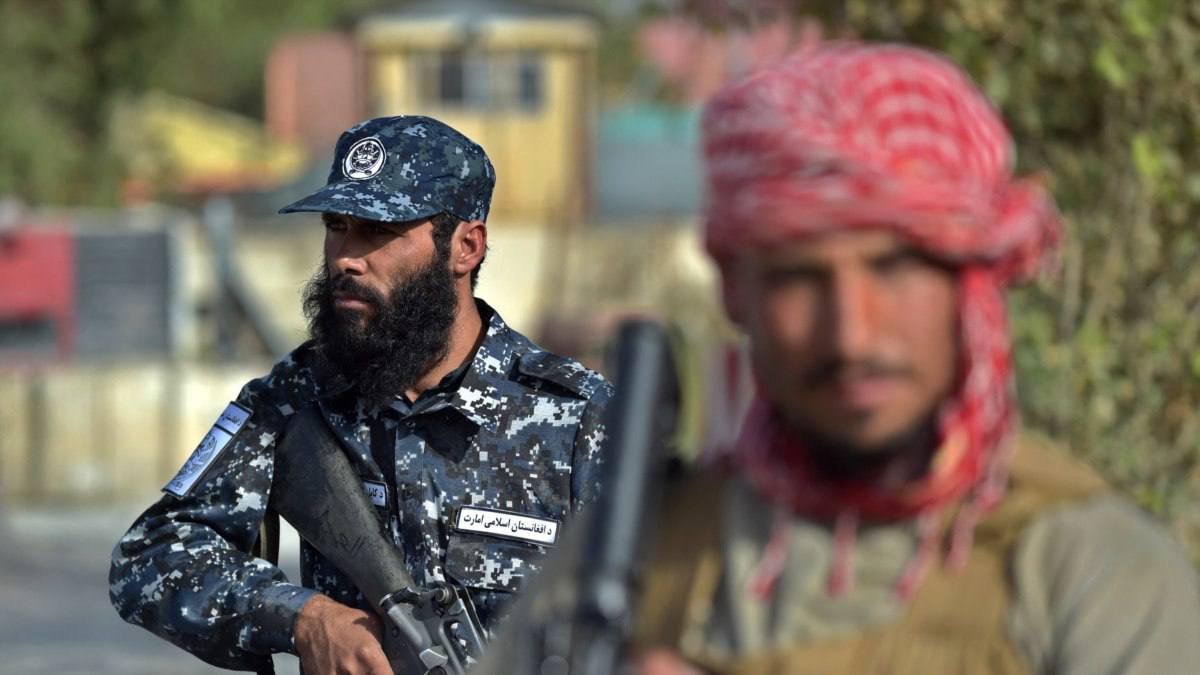- Joined
- Mar 11, 2013
- Messages
- 14,377
- Points
- 113

Two Taliban members in Herat province in the west of Afghanistan. September 2024. File photo.
In its quarterly report, the UN mission in Afghanistan, UNAMA, has found that at least 50 Ismaili men were forced to convert to Sunni Islam by local Taliban authorities in the northeastern province of Badakhshan between January and February.
Those who resisted were beaten or threatened with death, while their children were compelled to attend Sunni madrassas, the report says.
According to the report, inspectors from the Taliban’s Department for the Propagation of Virtue and Prevention of Vice entered homes at night, interrogating men on religious doctrine. Those who refused to renounce their beliefs were subjected to beatings, threats, and physical intimidation.
Local Taliban authorities also established several madrassas in areas predominantly populated by Ismailis, compelling Ismaili children to attend religious instruction based on Sunni teachings, the report says.
According to the report, these developments mark a significant escalation in what observers have called an intensifying campaign of religious homogenization.
Crackdown on Ramadan
The report says that from March 1 to March 29, Taliban PVPV (morality) enforcers enforced new mandates tied to Ramadan observance. In multiple provinces—including Farah, Helmand, Zabul, and Samangan—Taliban officials detained or harassed individuals who failed to attend mosque for nightly Tarawih prayers. Businesses that remained open during prayer hours were ordered to close, and clerics were instructed to identify community members who did not attend congregational prayers.
In Badghis and Herat provinces, women were barred from participating in Tarawih prayers at local mosques altogether and were instead ordered to pray at home. These restrictions further limit women’s access to public religious life and reinforce gender-based exclusion.
These measures violate Afghanistan’s obligations under international human rights law, particularly as a signatory to key international covenants on religious freedom and minority rights. UNAMA’s report underscores that the Taliban’s interpretation of Islam is being enforced at the expense of both minority religious communities and individual choice.
The crackdown on the Ismaili community comes amid broader concerns about Taliban policies aimed at suppressing religious and cultural diversity. The mission noted that such practices represent a systemic effort to reshape Afghan society along rigid ideological lines, often using coercion and violence to impose compliance.
A call for accountability
UNAMA has called on the Taliban to cease discriminatory practices against religious minorities and to uphold Afghanistan’s commitments under international law. Rights groups have also urged the international community to prioritize protections for at-risk religious groups in their diplomatic engagement with the Taliban.
While the Taliban have publicly claimed to respect religious diversity, their continued imposition of forced religious instruction and suppression of minority beliefs contradicts these assertions. As UNAMA’s report warns, failure to protect religious freedoms could deepen existing divisions and fuel long-term instability in the country.
